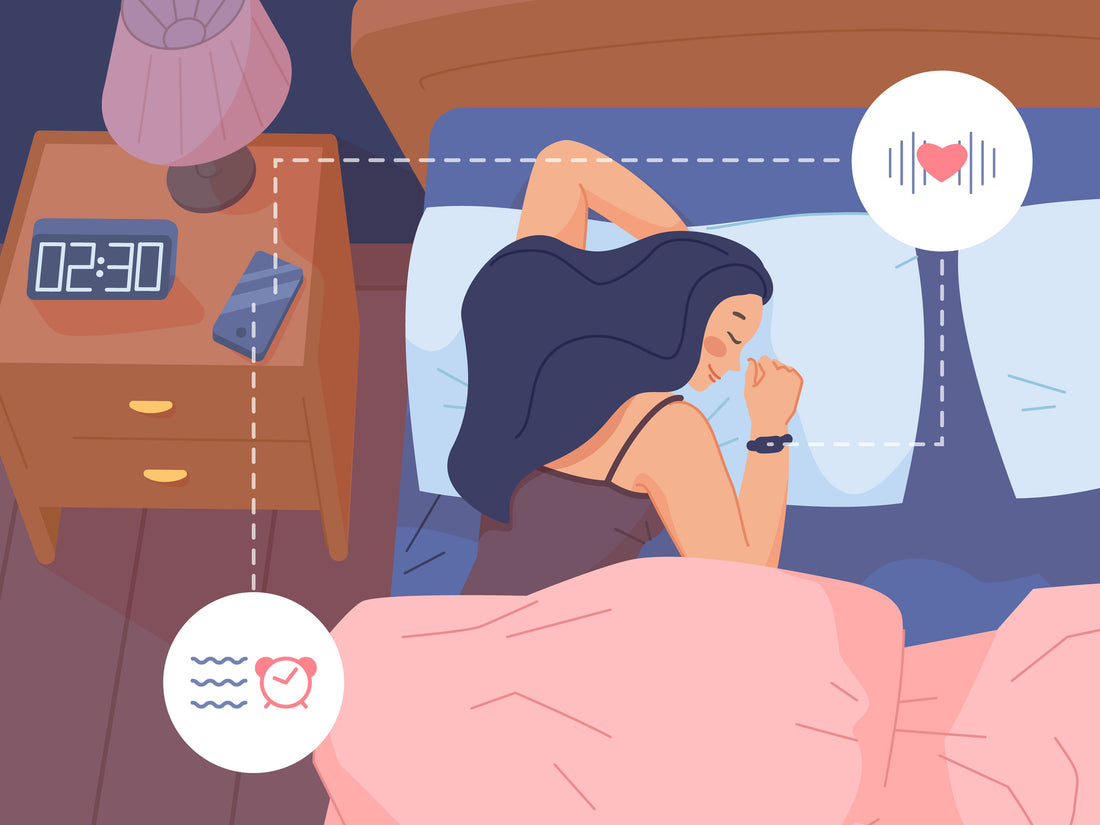In a fast-paced world, getting a good night's sleep is more crucial than ever. The importance of quality sleep cannot be overstated, as it directly impacts our overall health and well-being. That's where sleep tracking devices come into play. In this blog post, we'll explore the world of sleep tracking gadgets, evaluate their worth, and provide tips on how to use them wisely.
Benefits of Sleep Tracking Devices:
1. Insightful Sleep Data:
One of the most significant advantages of sleep tracking devices is their ability to provide detailed insights into your sleep patterns. These gadgets monitor your movements, heart rate, and even your breathing during the night. With this data, you can gain a better understanding of your sleep quality, duration, and disturbances.
2. Identify Sleep Disorders:
Sleep tracking devices can be valuable tools for detecting potential sleep disorders such as sleep apnea or insomnia. They can track snoring, periods of restlessness, and interruptions in your sleep cycle, providing valuable information to share with healthcare professionals.
3. Personalized Sleep Improvement:
By analyzing your sleep data over time, these devices can offer personalized recommendations to help improve your sleep quality. They can suggest adjustments to your sleep routine, such as changes in bedtime or evening habits, which can lead to more restful nights.
4. Accountability and Motivation:
Many sleep tracking devices come with mobile apps that allow you to set goals and track your progress. This accountability can motivate you to make positive changes in your sleep habits and achieve better overall health.
Popular Sleep Tracking Gadgets:
1. Fitbit Charge 5: This well-known fitness tracker also offers comprehensive sleep tracking features. It provides detailed data on sleep stages, heart rate variability, and blood oxygen levels during the night.
2. Apple Watch Series 7: With its built-in sleep tracking capabilities, the Apple Watch monitors your sleep patterns and provides sleep scores, encouraging you to establish a healthy sleep routine.
3. Oura Ring: The Oura Ring is a discreet sleep tracker that focuses on monitoring your sleep quality, readiness, and recovery. It provides personalized insights and actionable recommendations based on your data.
Limitations of Sleep Tracking Devices:
1. Accuracy Concerns:
While sleep tracking devices have come a long way, they are not as accurate as professional sleep studies conducted in a controlled environment. Variations in device placement and data interpretation can affect their accuracy.
2. Sleep Interruption:
Some individuals may find it challenging to sleep with a device on their wrist or under their pillow, which can lead to sleep disturbances, especially during the initial adjustment period.
How to Use Sleep Tracking Devices Wisely:
1. Set Realistic Expectations:
Understand that sleep tracking devices provide estimates rather than clinical data. Use them as tools to gain insights into your sleep patterns and trends, but don't rely solely on their recommendations for serious sleep disorders.
2. Consistency is Key:
For the most accurate results, wear your sleep tracking device consistently and follow a consistent bedtime routine. This will help the device understand your sleep patterns better.
3. Consult a Professional:
If you suspect you have a severe sleep disorder or require medical advice, consult a healthcare professional. Sleep tracking devices can be valuable tools, but they should not replace professional medical evaluation.
Sleep tracking devices offer valuable insights into our sleep patterns, helping us make informed decisions about our sleep health. While they may have some limitations, their benefits in improving sleep quality and overall well-being are undeniable. When used wisely and in conjunction with healthy sleep habits, these gadgets can be a valuable addition to your sleep improvement journey. Sweet dreams!

